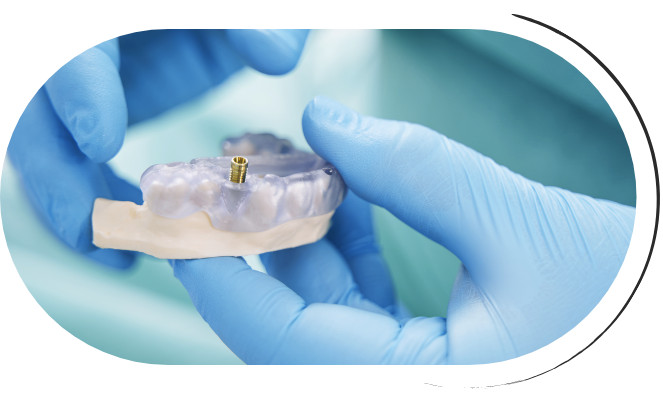
Additional Children’s Dental Procedures
You want your child to have a perfect smile. But did you know that tooth decay is the most common childhood disease? Beyond everyday children’s dental work, such as teeth cleaning, Park Dental performs treatment procedures that are needed on occasion. Our team is dedicated to correcting your child’s dental anomalies so that your little one can smile with confidence.
Dental Crowns for Children
If you’ve seen kids with silver teeth, you’ve seen kids with dental crowns. Dental crowns are the go-to treatment for teeth with substantial decay, which, in many cases, can’t be treated with fillings and sealants. The best solution is totally covering the tooth with a crown that insulates the tooth from further damage.
Today, crowns come in multiple materials, including gold and porcelain. Porcelain crowns can match the color of your child’s tooth.
Dental Crowns for Children
While porcelain crowns look natural, they’re delicate. Used in a child’s mouth, porcelain crowns are prone to breaking.
For many parents, stainless steel is a better option. Stainless steel crowns on baby teeth are less likely to break, but they don’t last forever. When the baby tooth falls out, so does the crown.
Root Canals and Kids
Directly beneath a tooth’s enamel is a layer called dentin. Underneath dentin is pulp. The pulp houses nerves and blood vessels that make up each tooth’s root. Dental X-ray images help dentists see all these layers.
If a cavity gets past the hard enamel, it often moves quickly to the other layers. Once it reaches the pulp, inflammation or infection settles in, leading to discomfort and pain.
In these cases, your child’s dentist may perform a root canal, also known as pulpotomy for baby teeth. During this children’s dental procedure, the dentist administers children’s dental anesthesia and then proceeds to remove the problematic pulp. The dentist then cleans and disinfects inside the tooth and injects a special material into the hollowed pulp to fill the space. Finally, the dentist seals the tooth to prevent future decay.
When tooth decay is extreme, tooth extraction may be the best option. This prevents infection in one tooth from spreading to other teeth.

Dental Implants in Children
Sometimes, teeth need replacement. In these cases, dental implants are the solution. That said, however, children are not good candidates for this type of dental surgery because their jaws have not fully developed, which typically happens around age 20. Placing an implant before development finishes could cause trouble down the road.

Teeth Whitening in Adolescents
While it may seem purely cosmetic, teeth whitening can improve dental hygiene in adolescents who have already lost all their baby teeth.
As with adults, adolescent’s permanent teeth may become stained over time. This is sometimes due to poor dental hygiene. Encouraging older children to brush and floss regularly can help prevent staining.
When staining occurs, children can become embarrassed and self-conscious. This can lead to a variety of social issues. The appropriate use of whitening procedures can help.
Teeth Whitening in Adolescents
A number of teeth whitening options are currently available. For best results, a dentist should perform the whitening process to ensure it is done safely and will not damage teeth. Your child’s dentist can also talk with you about possible side effects of teeth whitening, including gum inflammation and tooth sensitivity.
Together, you may determine whether the procedure is right for your child.
Request an appointment with a family dentist you can trust at a Park Dental location near you.